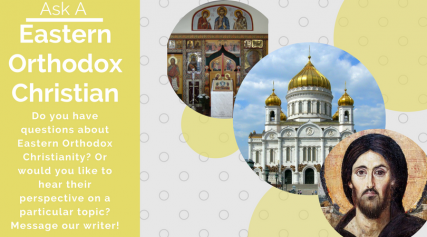What would you like to know about the Eastern Orthodox Christian faith? Submit your question.
By Nicholas Damascus
According to the Eastern Orthodox Church, was the passion of Christ as violent as depicted in Mel Gibson’s “The Passion of the Christ” Was the actual scourging as violent as shown in the movie?
The Romans were extremely brutal, and the depiction in the movie about His suffering was probably not far off as to what Jesus experienced. However, the movie may have underemphasized the main reason, intention, and purpose of why the Son of God entered His creation and became man.
The journey of Jesus’s beatings and tortures on His way to the cross takes a good share of the movie. After the death of Christ, the resurrection is depicted with a mere 25 seconds at the very end of the movie and gives the appearance that the resurrection is more of an afterthought.
The cross means nothing without the proof and witnessing of the resurrection of Christ. Without the resurrection, Christianity is nothing more than an individual that died for a religious cause. The resurrection was a clear statement of Christ’s victory over death, sin, and Satan and that Christ Himself is Life itself. John 14:6 Jesus said to him, “I am the way, the truth, and the life.”
For Orthodox Christians, the reason, intent, and purpose of the Incarnation, death, and resurrection of Christ could be summed up as follows.
From the time of the Fall of Adam and Eve, mankind suffered from the effects of sin and death, and all who died, including the saints and martyrs, were separated from God. Their spirits were imprisoned in a place called Hades or Sheol (Not Hell), which is like a holding tank (1 Peter 3:19).
Eventually, when the time was right, the Son of God entered His creation to offer man the salvific opportunity to once again be reunited with God and to be free of the bondage of sin and death. Through Christ’s birth, death, and resurrection, He revealed to us the Father and His divine plan of salvation.
From the Eastern Orthodox perspective, simply put, “God became man so that man, through God’s grace and mercy, could become like God.” This process known to Orthodox Christians is called theosis, which can be defined as sharing in the Nature or Life of the all-Holy Trinity, becoming by grace what God is by nature.
When Saint Paul says, “And do not be conformed to this world, but be transformed by the renewing of your nous (heart), that you may prove what is that good and acceptable and perfect will of God” (Rom 12:2). Are we not sons and daughters of God, and are we not partakers of the divine nature, or is this just mere symbolism?
In the Eastern Orthodox Church, the Paschal (Easter) hymn sung is “Christ is risen from the dead, trampling down death by death, and upon those in the tombs bestowing life!”
Orthodox for 40 days following Easter (Pascha) the Paschal season one greets one another with the words of “Christ is Risen!” and the respondent says, “Truly He has risen!” In the Greek pronunciation, Khristós anésti! Alithós anésti! …..Greek text Χριστὸς ἀνέστη! Ἀληθῶς ἀνέστη!










